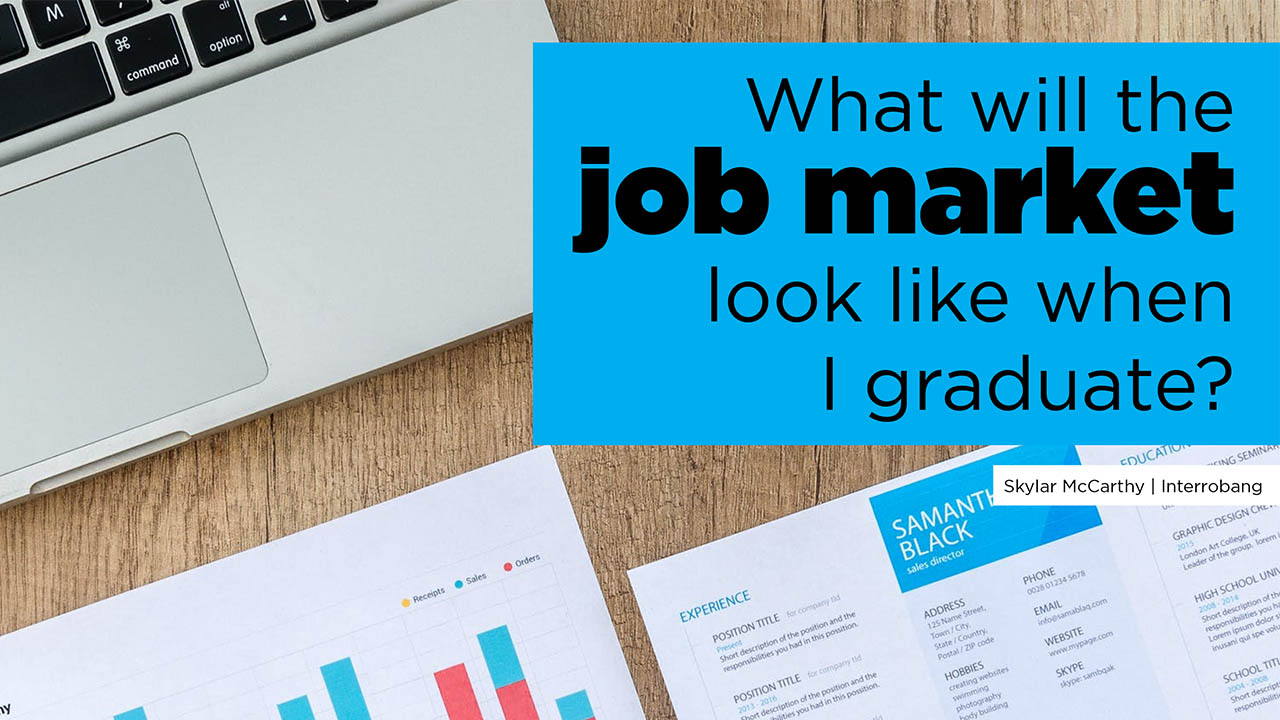What will the job market look like when I graduate?

For some students out there like myself, graduation is a few months away. All your hard work will be put to the test in your last semester, before you finally get the degree/diploma that you have been wanting for a while. But what happens after you graduate?
For most students, we will need to find some work and be able to collect income to survive. However, we’re seeing the worst economic downfall since the Great Depression, which happened in the 1930s. According to the Royal Bank, Canada will fall into a recession and as the second wave has arrived, more jobs will be lost. There’s just a lot of uncertainty right now.
So, what are you going to do in April, when you graduate, but need to get a job and start collecting income? “The hospitality industry is anticipating a major boom. Hopefully by the summer, they're still hiring people. as well,” said Darlene O’Neill, executive director of Fanshawe’s Employment and Student Entrepreneurial Services. When it comes to other fields that will be successful in getting a job, she also said that essential services such as health care, grocery stores jobs like supply chain management, logistics, IT and marketing, will still be looking for employees.
In terms of how our local economy can bounce back, O’Neill said that she believes the labour market will be able to rejuvenate. London Mayor Ed Holder recently tweeted out saying, “The resilience of our economy, our employers, and our workforce is demonstrated yet again in the latest jobs numbers released by Stats Canada. 3,700 jobs added in December, marking our 6th straight monthly increase for a total of 27,500 jobs during that time.” Which gives us at least some sort of hope of how our local economy will bounce back from this economic crisis.
“I believe that the second wave of COVID has redefined the way we work. The virtual working at home format, I suspect we’ll continue from here, regardless of lockdowns or not,” O’Neill said. She also suggests that students should get some virtual networking skills as more and more jobs are going to happen from home. There are a number of these skills that you can work on by going through the InSPIRE Mentoring program at Fanshawe, where students in their graduating year will be connected to industry mentors. Students can find out more about the program at fanshawec.ca. She also said students need to review all their public social media profiles.
“LinkedIn is going to be more important than ever. But also have a good look at your social media, because employers are probably looking more at social media than they ever have. They’re not having an opportunity to meet you in person. So, to get an understanding of what kind of a person you are, they’re probably going to have a look at, you know, your Snapchat, your Instagram, your Twitter, your Facebook. So, make sure that those are reflecting who you truly are.” O’Neill also says that lastly, people need to knowhow to present themselves professionally, and exercise good visual cues as more job interviews become more virtual.
But what happens if you don’t find a job in the industry you’re just about to graduate into? O’Neill recognized that COVID-19 may cause some barriers, but also said that not everyone graduates and goes into their dream job.
“I’m a prime example of that. I graduated from university and I was buying submarine parts and I had a degree in psychology.”
But she also tells students to remember that the job that you land is an opportunity to get references, to learn about a working environment, and to demonstrate all of the soft transferable skills that you have and build on your resume.
Fanshawe Employment and Student Entrepreneurial Services will also have a virtual career fair on Feb. 24. Students will have to register online, and they are anticipating over 100 employers from different industries will be there. You can learn more about fanshawec.ca/careerfair.

















